17 delicious dishes and drinks banned in many countries around the world
Categories: Food and Drinks
By Pictolic https://pictolic.com/article/17-delicious-dishes-and-drinks-banned-in-many-countries-around-the-world.htmlAlmost every country in the world has original culinary preferences that turn out to be shocking for residents of other countries. Many of the national dishes contain ingredients that can be hazardous to health. Others are prepared using the meat of animals that are on the verge of extinction, while others simply contradict the foundations of a particular country. Our review includes 17 prohibited dishes from around the world.
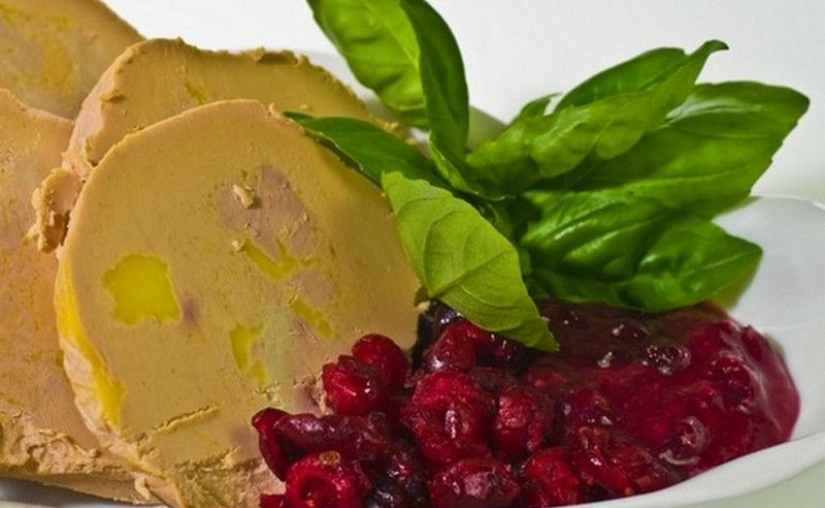
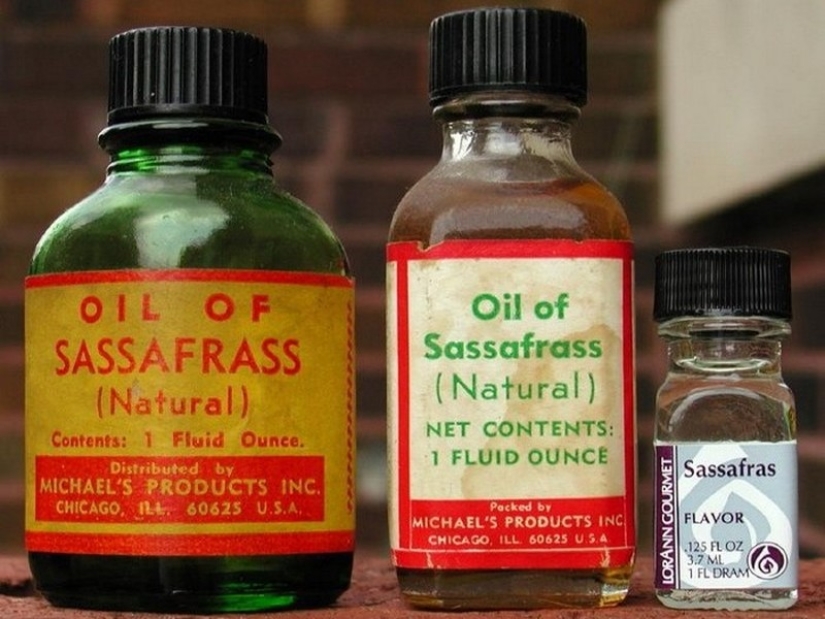 1. Sassafras
1. Sassafras
The leaves of the sassafras tree, which grows in North America, are used to make a completely harmless spice with a unique taste. However, sassafras essential oil is made from the roots of the same plant, which was once used to flavor beer and other drinks. The oil was banned in the United States in 1960 when one of its ingredients was discovered to cause liver cancer.
 2. Haggis
2. Haggis
Any Scot will say that the symbols of his country are whiskey, the Loch Ness monster and haggis. Haggis is a delicacy made from sheep lungs twisted with other organs and placed in a specially prepared stomach of the animal. In the United States, this dish was banned due to a law on the commercial distribution of sheep lungs.
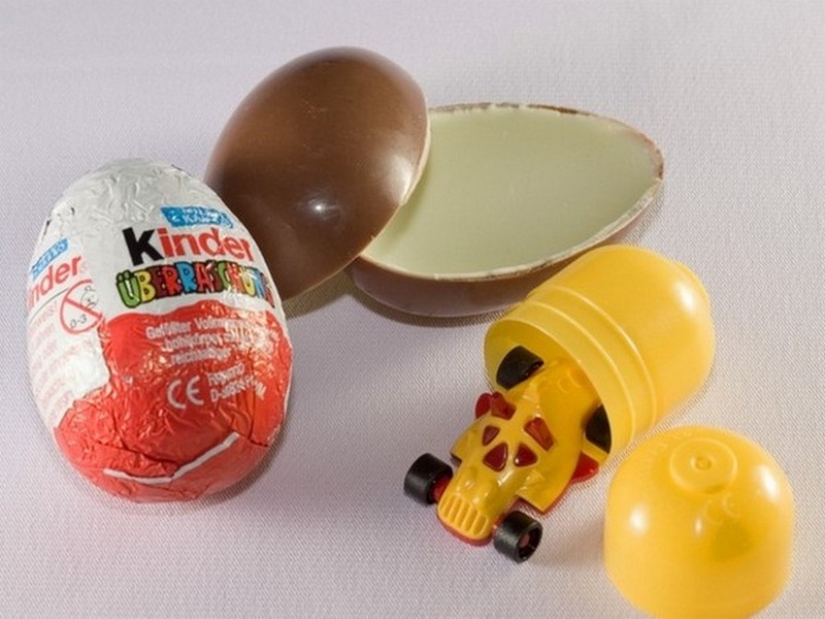 3. Kinder surprise eggs
3. Kinder surprise eggs
Those who are going to go to a supermarket in the USA and buy their child this sweet treat with a toy inside are in for an unpleasant surprise. It turns out that Kinder Surprise is banned for sale in the United States because the country's Department of Health does not approve of the use of a combination of edible and non-edible items.
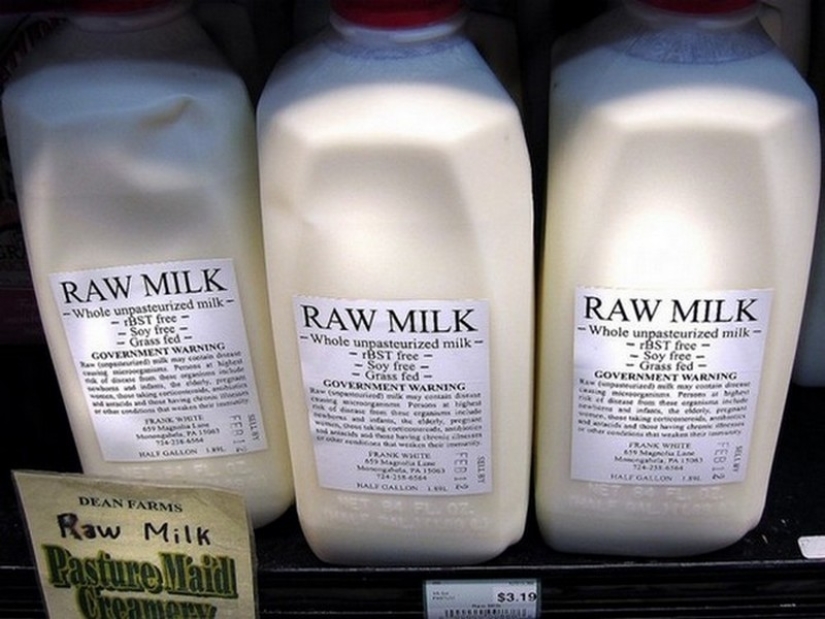 4. Unpasteurized milk
4. Unpasteurized milk
Unpasteurized milk is sold throughout Europe and is considered much tastier and more nutritious than heat-treated milk. However, it is banned in 22 US states and Canada due to concerns about the spread of listeriosis, salmonellosis, E. coli and campylobacteriosis. The law applies not only to milk, but also to all dairy products made from unpasteurized milk.
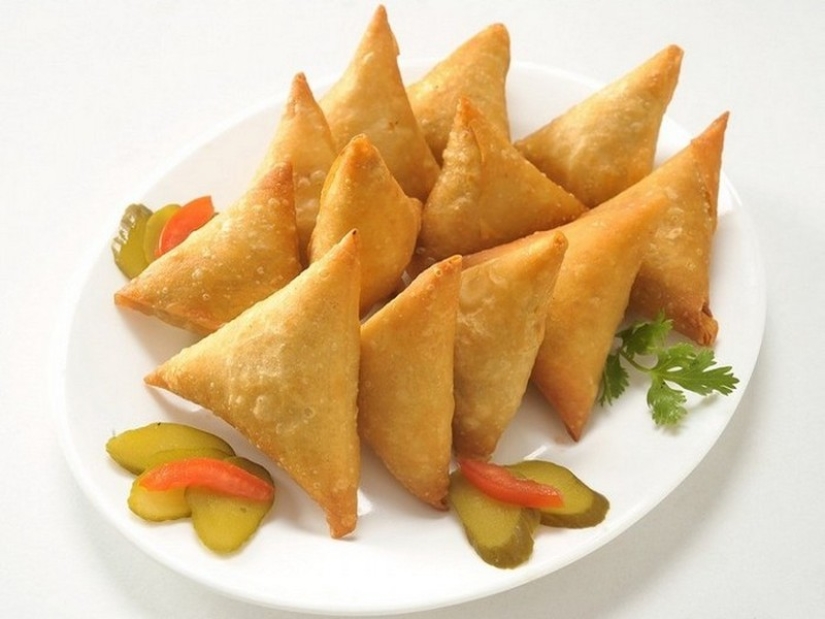 5. Samsa
5. Samsa
A traditional dish of the Horn of Africa and India is samsa - spicy triangular fried dough pies filled with meat or vegetables. However, samsa was banned in Somalia because it was considered “too Christian.” Allegedly, the triangular shape of the samsa is associated with the Holy Trinity.
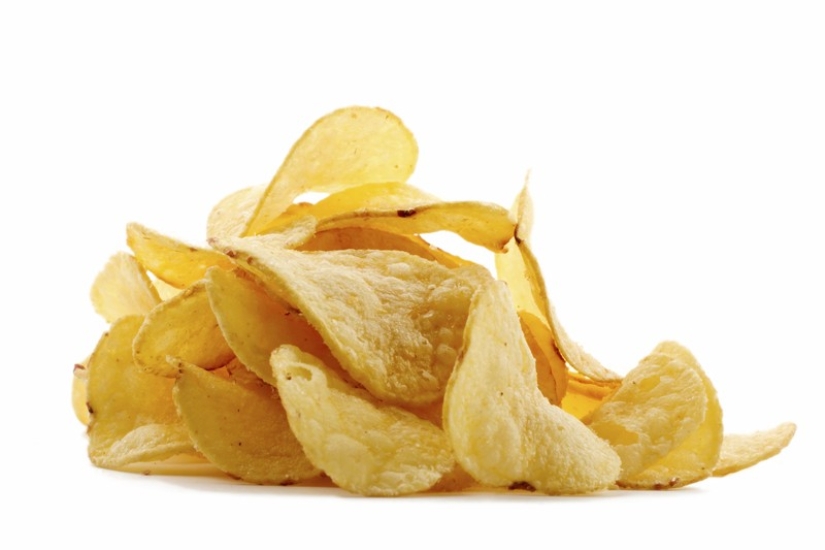 6. Olestra
6. Olestra
Olestra, or olean, is a synthetic fat substitute used in potato chips and French fries. This Procter & Gamble product has been banned in the UK and Canada because it can cause intestinal cramps and stomach upset.
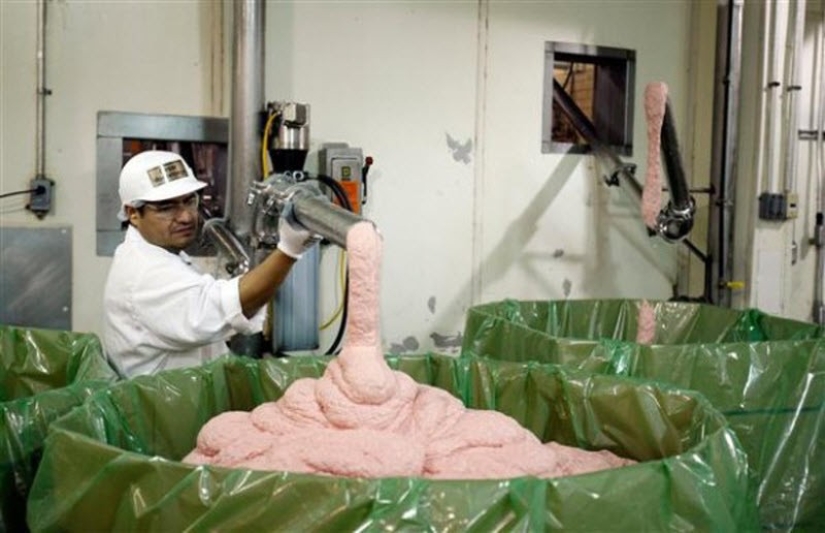 7. Pink slime
7. Pink slime
The paste with such a disgusting name is made from meat scraps. Previously, it was believed that it was only suitable as dog food. The paste is soaked in ammonia to give it a “meaty” pink color. Pink slime is still a major ingredient in hamburger patties and hot dogs in the United States. In the EU, this product has been banned for human consumption.
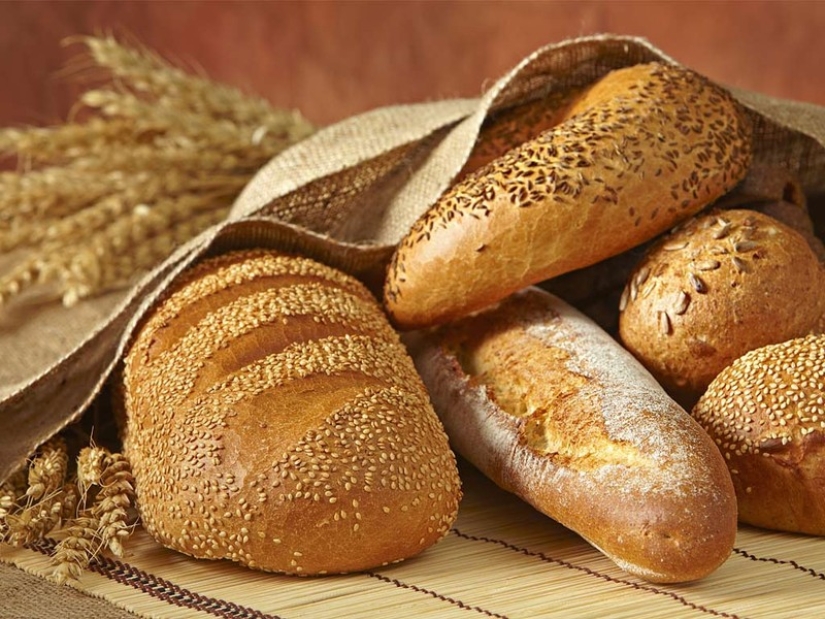 8. Bread with potassium bromate
8. Bread with potassium bromate
Potassium bromate is used as a baking additive to make dough more viscous. Eating bread with potassium bromate can lead to kidney failure, nervous and digestive system disorders, thyroid problems and cancer, which is why it has been banned in the EU, Canada, Brazil and China.
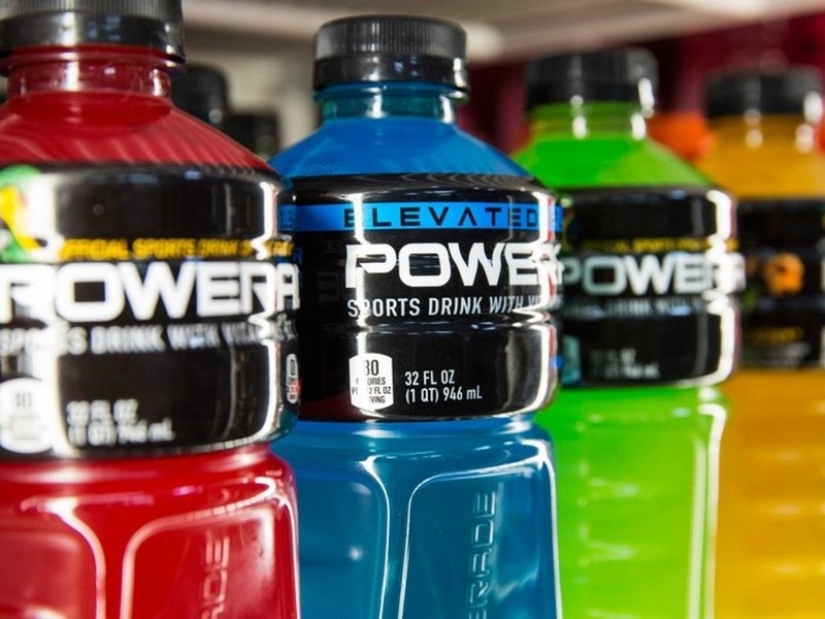 9. Sports drinks and fruit sodas
9. Sports drinks and fruit sodas
Brominated vegetable oil was originally patented as a fire retardant liquid. The same substance is found in most flavored drinks and citrus-flavored sports drinks that are popular in the United States. Brominated vegetable oil has been banned in more than 100 countries, including the EU, because it has been shown to cause thyroid dysfunction, autoimmune diseases, growth inhibition, and schizophrenia.
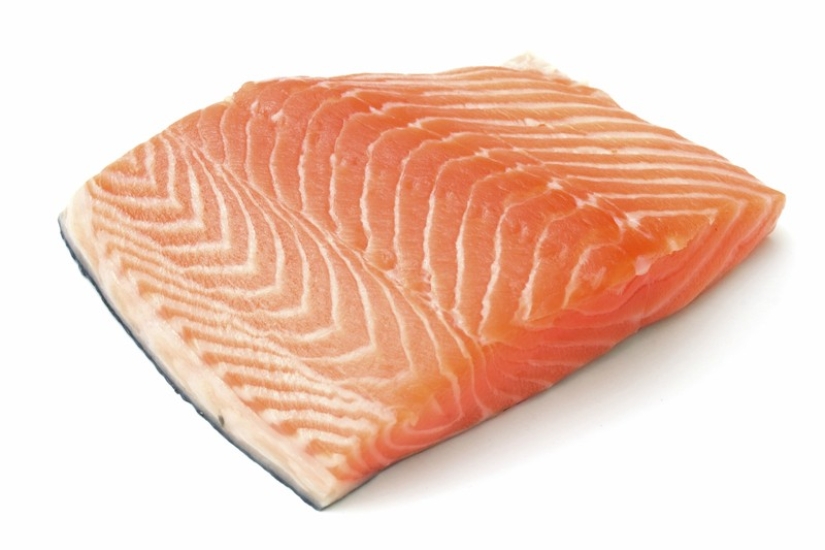 10. Farmed Salmon
10. Farmed Salmon
It is generally believed that salmon meat is a healthy product. This is only true if the salmon were raised in their natural habitat. In fish farms, salmon are raised on a special menu consisting of grain mixed with antibiotics and other drugs. This mixture causes the fish's flesh to turn gray, so manufacturers add astaxanthin to make it pink. This substance is very dangerous to humans, but farmed salmon is only banned in Australia and New Zealand.
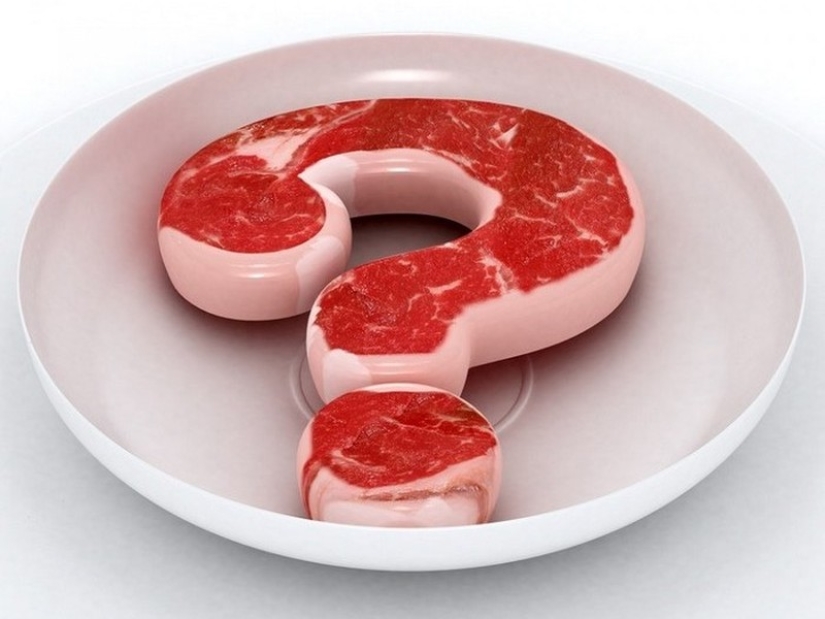 11. Meat with added ractopamine
11. Meat with added ractopamine
Ractopamine is a synthetic supplement that is widely used to increase muscle mass in animals. The same substance is used in the treatment of asthma. Ractopamine can lead to obesity, heart disease, insomnia, headaches, cramps, etc. Not surprisingly, it has been banned in 160 countries, including the EU, Russia and China. However, in the United States, ractopamine is used in more than 45% of pigs, 30% of cattle and turkeys.
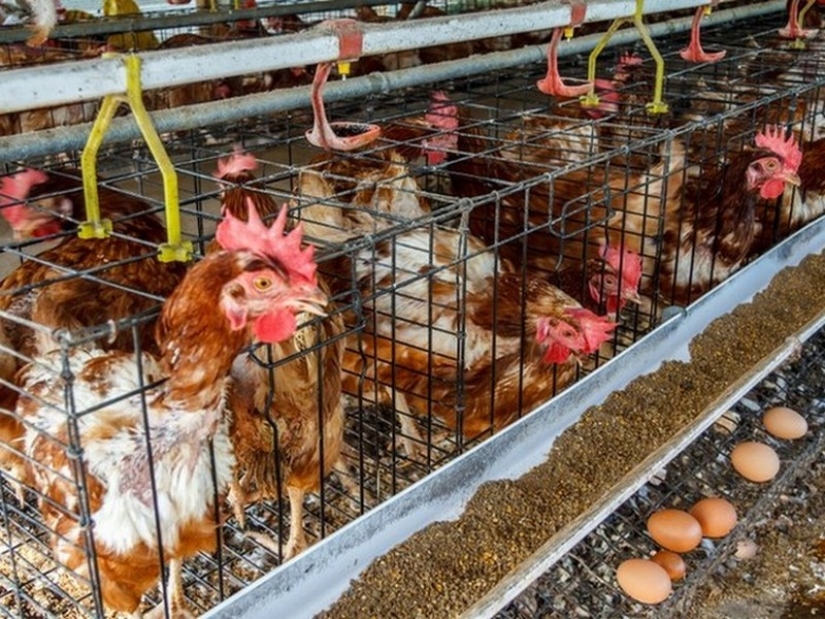 12. Chickens with arsenic
12. Chickens with arsenic
If you ask any person to name the first poison that comes to his mind, most will remember arsenic. And on modern chicken farms, arsenic is used to give the meat a pink color. Consumption of arsenic leads to cancer, so adding it to chicken feed has been banned in the EU. However, the US Department of Health approves the use of arsenic in chicken feed.
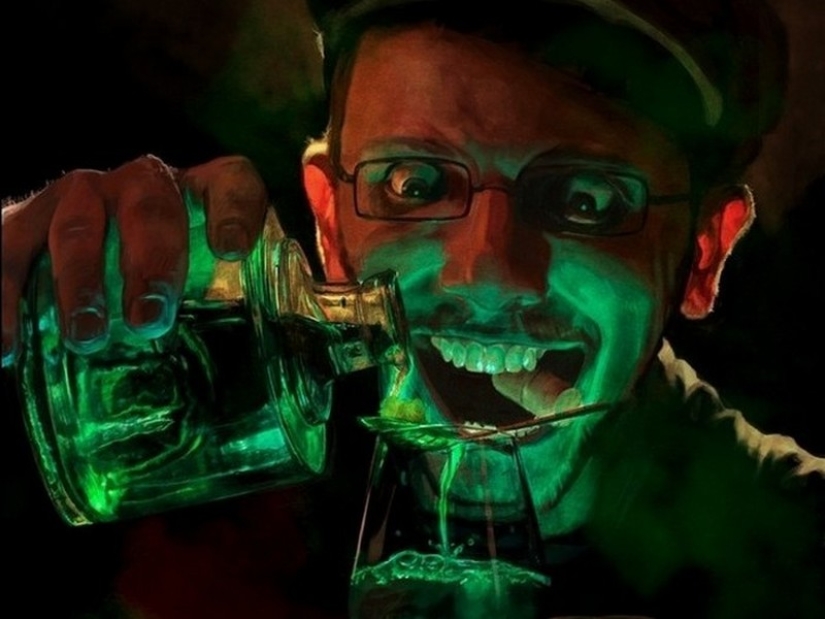 13. Absinthe
13. Absinthe
Absinthe is an exceptionally strong alcoholic drink that is obtained from the leaves of various varieties of wormwood. According to historical records, it first appeared on sale in 1797, but its exact origin remains a mystery. Absinthe stimulates creativity, but it can also cause hallucinations and aggressive behavior. Absinthe is generally believed to have originated in France, but it was banned in that country for more than 100 years. In 2011, the Senate voted to lift the ban on the sale of absinthe, which will likely remain illegal forever in the United States, New Zealand and Australia.
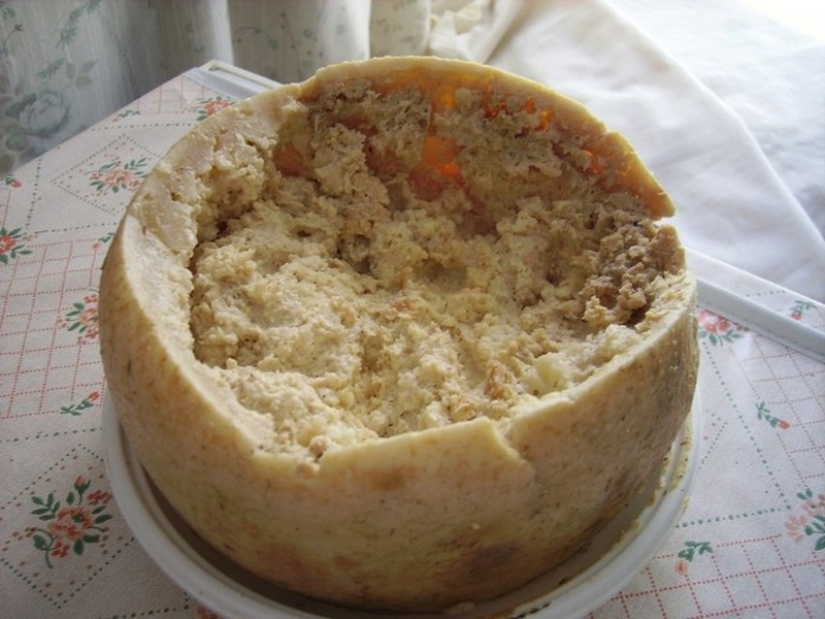 14. Kasu marzu
14. Kasu marzu
Casu marzu, which means "rotten cheese", is a traditional delicacy in Sardinia. It is made by injecting fly larvae into pecorino cheese. The larvae digest the cheese, bringing it to a new level of fermentation. Most often, kasa marzu is eaten directly with the larvae, which is very dangerous. Stomach acid does not always destroy larvae, which can burrow through the walls of the stomach and intestines. Therefore, rotten cheese was banned in the US and EU.
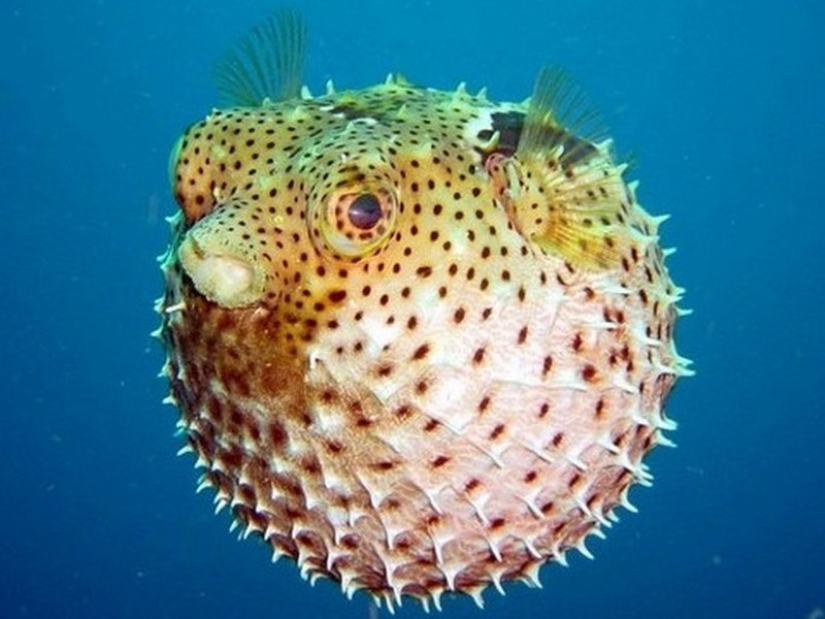 15. Fugu
15. Fugu
Puffer fish is the most poisonous invertebrate in the world. Its meat is considered a delicacy in Japan and Korea. However, if there is the slightest mistake when preparing fugu, it becomes deadly poisonous. Even the most experienced chefs need three years of training to master the secrets of making fugu, which contains a dangerous neurotoxin called tetrodotoxin. If improperly prepared, the toxin remains in the fish, causing muscle paralysis and death by suffocation. There is no antidote. It's no surprise that fugu is banned in the EU.
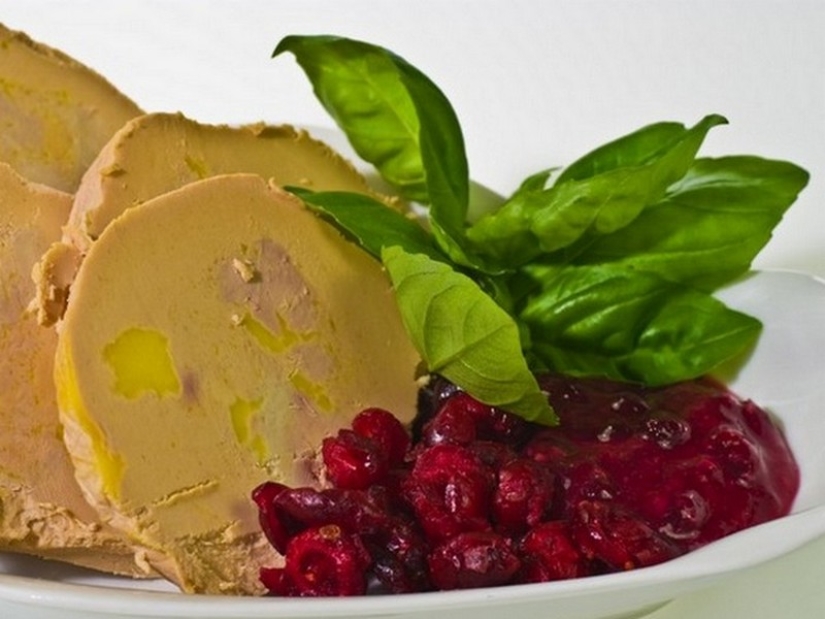 16. Foie gras
16. Foie gras
Foie gras is the French name for a famous delicacy, and this name is translated as “fatty liver.” Foie gras is made from the liver of ducks or geese, which are forced to eat 2-3 kg of food per day through a metal tube that is inserted into their esophagus. The procedure is repeated until the liver enlarges 10 times. The liver is then soaked in milk and honey to give it a special flavor. Due to animal cruelty, foie gras has been banned in 14 countries.
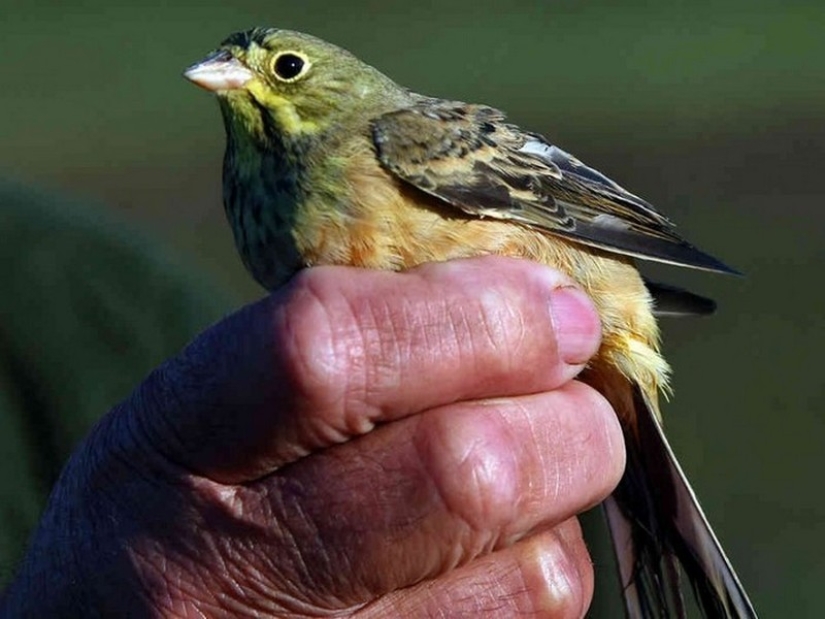 17. Ortolan
17. Ortolan
For thousands of years, this small sparrow-sized songbird (also known as the garden bunting) was tortured as a special delicacy for the nobility of France. The captured birds were either locked in a tiny dark cage or had their eyes gouged out, since in complete darkness the bird ate much more food than usual. The garden bunting was fattened until it was 4 times its normal size. It was then drowned in brandy and roasted whole. The ortolan is currently endangered and hunting it is now prohibited in France. Unfortunately, poachers continue to kill approximately 50,000 birds each year.
Recent articles

It's high time to admit that this whole hipster idea has gone too far. The concept has become so popular that even restaurants have ...

There is a perception that people only use 10% of their brain potential. But the heroes of our review, apparently, found a way to ...

New Year's is a time to surprise and delight loved ones not only with gifts but also with a unique presentation of the holiday ...